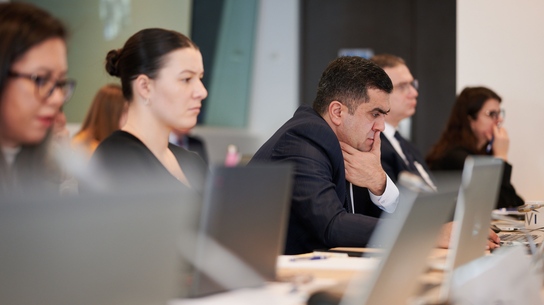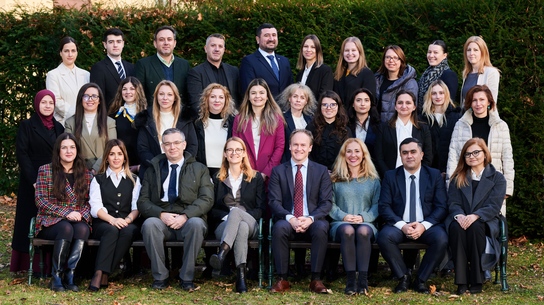- English | Русский


The JVI, in collaboration with Banque de France (BdF), hosted a new course on "Developing Non-Bank Finance in the CESEE Region: Prospects and Challenges" from January 27-31, 2025. The course brought together 28 participants from 15 countries across the JVI region, reflecting strong demand for capacity building in this critical area.
The program explored the rising prominence of non-bank financial institutions, including insurance companies, pension funds and investment funds. Despite the rising share of these institutions in CESEE financial markets, their full potential remains largely untapped. A major focus was placed on how non-bank finance can contribute to diversifying funding sources for startups and well-established firms, thereby fostering innovation and supporting economic growth. In addition to the financial development perspective, the course examined the regulatory frameworks necessary to ensure stability while enabling non-bank finance to flourish.
A distinguished feature of the course was the diversity of expert speakers from leading international financial institutions and regulatory bodies. Lecturers included representatives from the JVI, the BdF, the French financial supervisor ACPR, IMF, OECD, EBRD, IFC and ECB. Participants also benefited from two focused workshops led by OECD and JVI experts, focused on cross-country experiences regarding the development of thriving pension fund sectors and public equity markets, respectively. The program was complemented by a guest lecture by Raiffeisen Bank International on fintech developments, as well as a panel discussion featuring panelists from Erste Group Bank, IFC and OeNB on capital market development, both focusing on the CESEE region.
The course attracted a highly qualified group of participants, predominantly from central banks, with additional representation from ministries of finance and non-bank finance supervisory authorities. Many attendees were experts in areas such as insurance supervision, pension funds, fintech, and capital market development. Their engagement contributed to the depth of discussions and knowledge exchange throughout the week. As a first-time offering, the course received highly positive feedback. Participants particularly appreciated the breadth of topics covered and the interconnected perspectives presented and emphasized the value of expert insights and case studies tailored to the CESEE region. Their feedback will serve as a valuable input for enhancing future iterations of this course, reinforcing JVI's commitment to delivering high-impact training in financial sector development.
Maximilian Fandl, Senior Economist, JVI